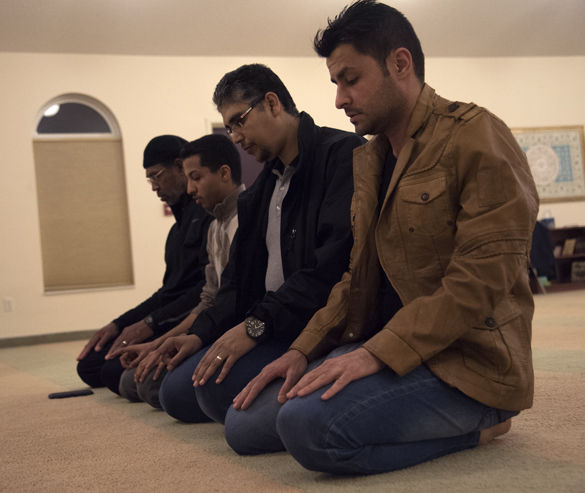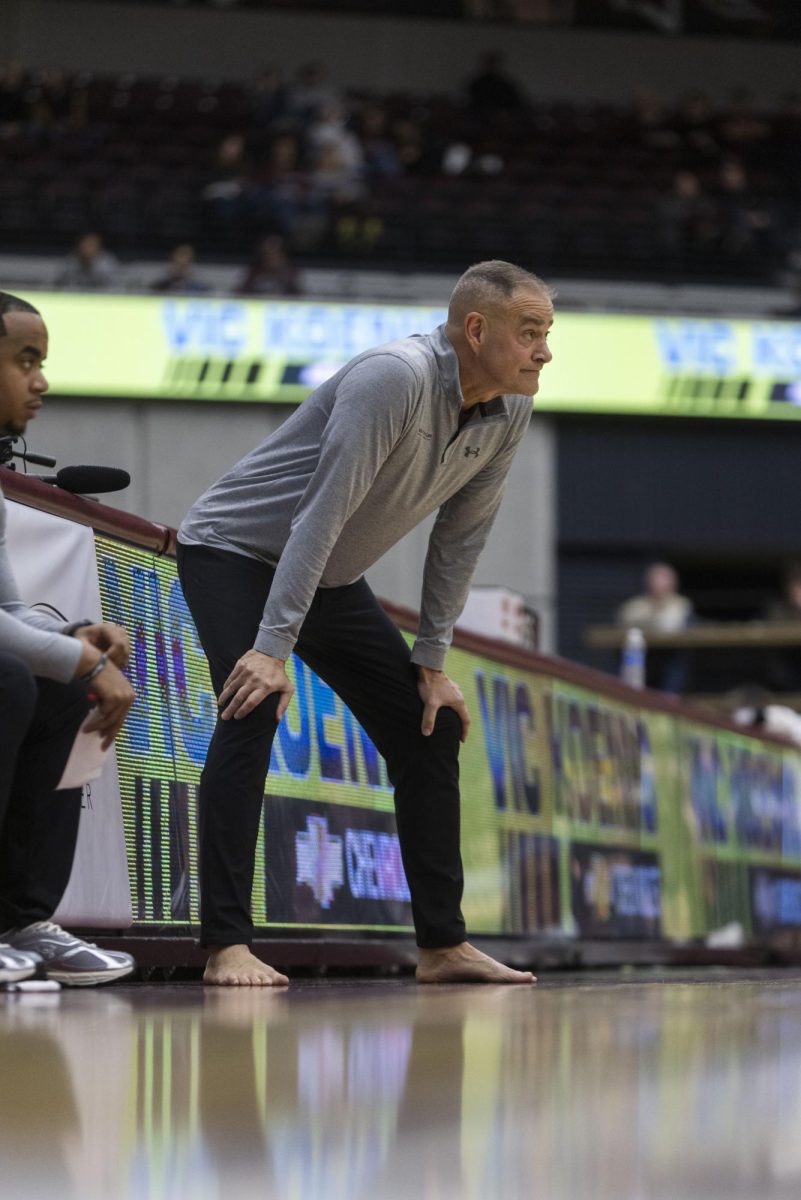Students examine religious misconceptions

Wisam Aldayyeni, a doctoral student in mechanical and computer engineering from Baghdad; Said Bakkar, a graduate student in physics from Amman, Jordan; Abdulrahman Alowais, a freshman studying aviation technology from Riyadh, Saudi Arabia; and Tariq Khaaliq, from Carbondale, kneel in silent prayer February 1, 2016, at the Carbondale Muslim Center. “I believe now some of the U.S. citizens believe you’re ISIS if you say you’re Muslim,” Alowais said, “but we have verses in our Holy Quran that say if you kill one person for no reason, you kill all of mankind. If you help someone live, it’s like helping all humans live… In Islam you pray, you ask God for forgiveness, and you go out and try to make people happy.”
February 1, 2016
Abdulrahman Alowais usually does not tell people he is Muslim until they get to know him better. He worries strangers will assume he is a member of ISIS, or another violent group, based on his religion, or because he is from the Middle East.
Alowais, a freshman from Saudi Arabia studying aviation technologies, said he feared some people might hurt or insult him because of his country of origin.
When he is in public, Alowais said he avoids speaking Arabic, his native language, even to his Muslim friends.
Advertisement
“I’m not saying I’m ashamed to speak Arabic,” said Alowais, who first came to America in May 2013. “I’m proud. I just don’t want to make people uncomfortable.”
Alowais said it is difficult to keep his religion, a strong part of his identity, hidden. Of course, he is not the only student or Carbondale resident to struggle with these issues.
About 2,000 people make up the Islamic community in the city, said Oasmane Sawadogo, assistant Imam of the Carbondale Muslim Center. Sawadogo, who works with Muslim students on campus, said one of the more common misconceptions associated with Muslims is that they may carry bombs.
“What some people are doing in the name of Islam does not necessarily reflect the behavior of Muslims,” Sawadogo said.
The Quran does not condone murder or suicide, he said, and some people don’t realize ISIS is also killing Muslims.
“The best way to know Islam is to hear from a Muslim and not to rely on what is being said in the media,” Sawadogo said.
Alowais said a man last semester handed him a small Bible on his way to class. He keeps it in his room as a reminder to respect Christianity and other faiths.
Advertisement*
If you hear someone talking about his or her religion, be patient and listen, Alowais said. Even though Alowais knows he cannot change outsiders’ perceptions of his community in one day, he said he wants to teach more people to respect one another.
“Islam is one of the most misunderstood religions in the world right now,” said Nabil Salik, a graduate student from India studying mechanical engineering.
Salik said there is more in common between Christianity, Judaism and Islam than people realize. To discuss these similarities and differences, students of Muslim and Christian backgrounds — including Alowais and Salik — gathered Monday evening at the Student Center.
The Rev. Jay Holden, assistant pastor at Our Savior Lutheran Church and president of SIU Campus Ministries, which organized the event, said everyone goes through struggles, and discussing this across faiths is important.
“This opens the door for tolerance and accepting each other,” Sawadoga said. “How can you know each other if you don’t mix with the other, if you don’t listen to the other?”
Anna Spoerre can be reached at [email protected] or 618-536-3325.
Advertisement







